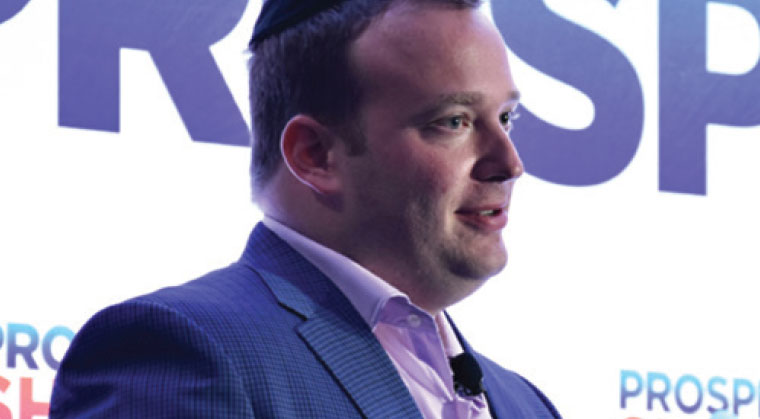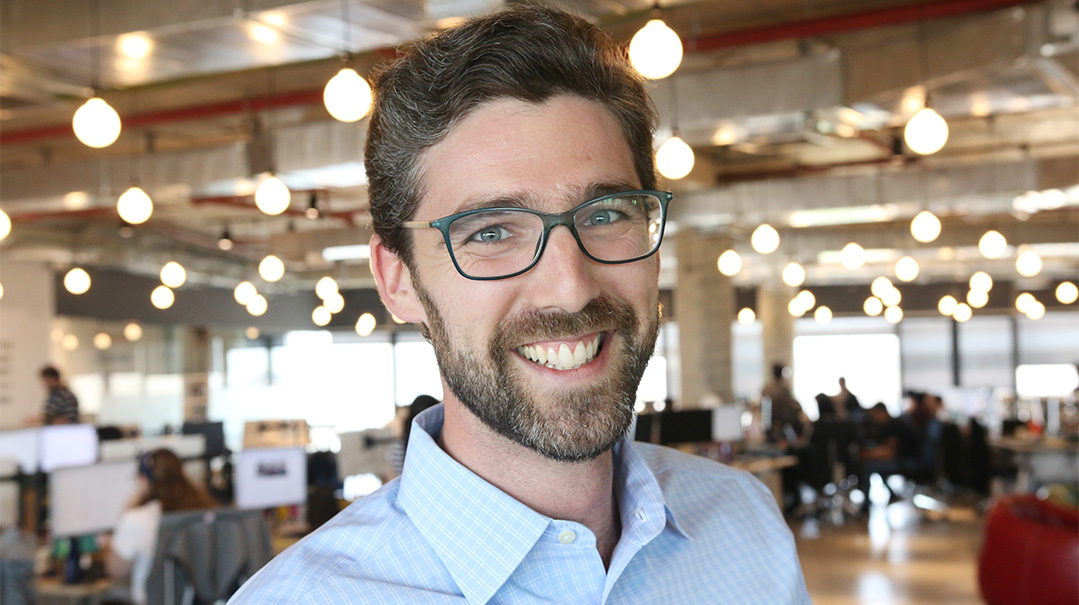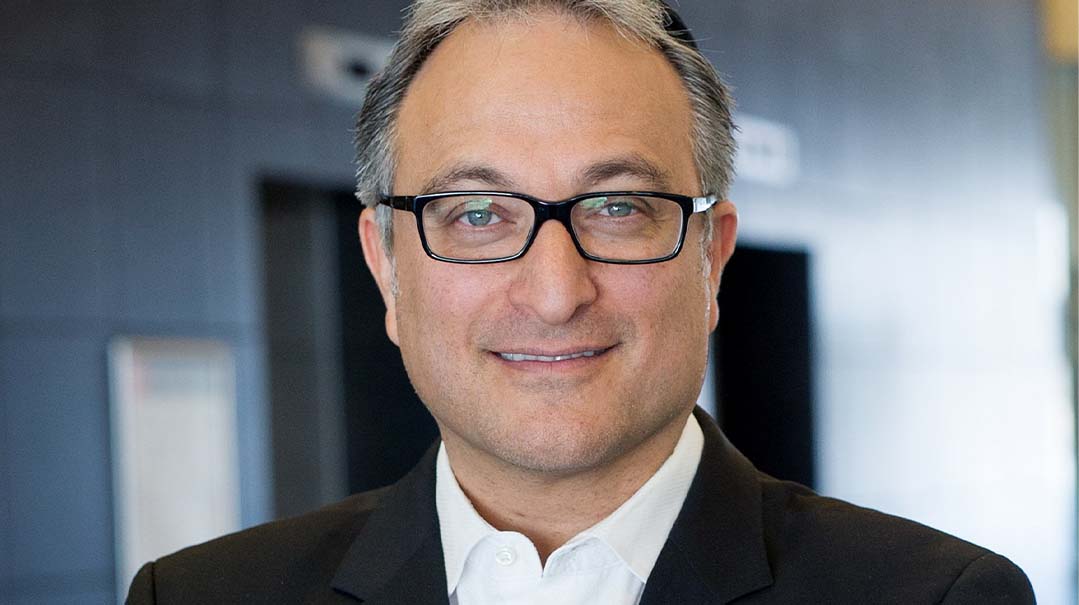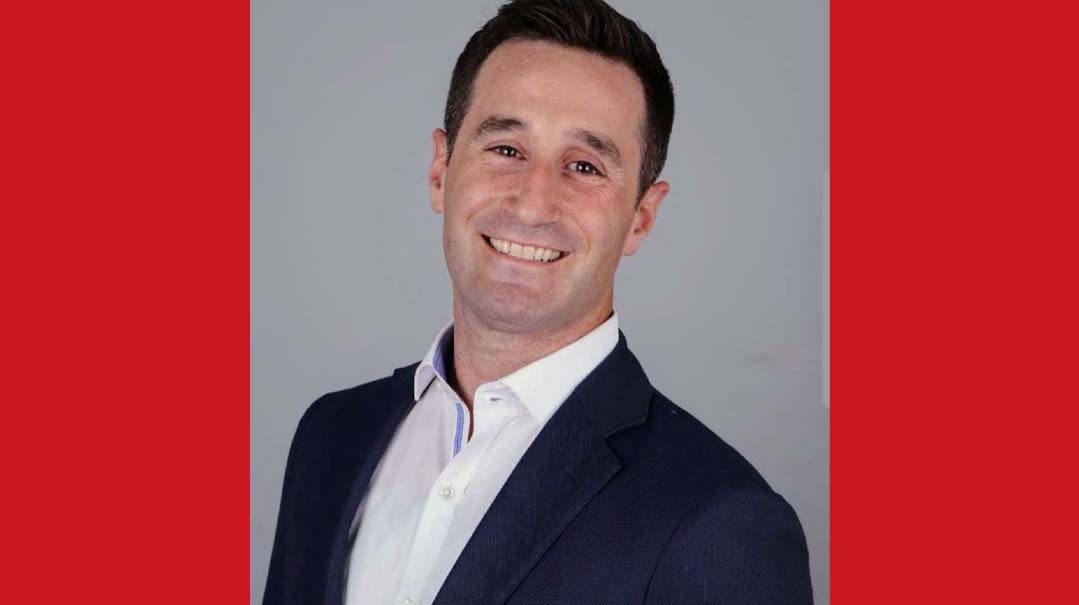Work/Life Solutions with Eytan Wiener


Who
Eytan Wiener, cofounder and COO of Quantum Networks, a NYC-based online retailer and brand development agency representing over 200 brands on the world’s largest online marketplaces.
What
Eytan and his partner Jonathan Goldman have spearheaded Quantum’s transformation from fledgling startup in 2008 to a highly respected business that has generated $175 million in revenue by 2018. Their impressive growth earned them a place on the Inc. 500 for three years in a row, as one of the fastest growing companies in the United States. In addition, Eytan continually shares his e-commerce expertise through numerous publications, blogs, and videos, and serves as a guest lecturer at universities, conferences, and trade shows throughout the world.
Where
A native of Queens, New York, Eytan currently resides in Bergenfield, NJ, with his wife and three children. He learned at Yeshivat Sha’alvim in Israel before completing his undergraduate studies at Yeshiva University. His office is in Midtown Manhattan, but his clients and conferences often have him jet-setting all over the world.
Why
My friend strongly encouraged me to interview Eytan for this column, and after meeting him at his office for coffee, I instantly understood why. Eytan is not only successful in business, but he also uses that platform to positively impact the Jewish world. My favorite example? The weekly shiur that he and his partner Jonathan host in Quantum’s office, geared towards Jewish professionals in their twenties and thirties. They serve delicious food and bring in talented speakers (and singers) to inspire the crowd, subtly imparting a deep and timeless message to all the participants: “You can be ambitious, dynamic, and successful, all the while growing in Torah as well.” I love that!
1 of 9 What opportunities or personalities played a key role in your career path?
Now that’s a loaded question!
First and foremost, thank G-d I’ve had the distinct privilege to grow up in a home with unconditionally loving parents and siblings committed to a Torah lifestyle, who emphasized hard work and education. I had barely finished one year of dental school when I decided it wasn’t for me. This was a very difficult juncture in my life. With the support of my beloved wife and family, I found my way into the world of online marketing and e-commerce, where I was able to flourish over time. This experience taught me the valuable lesson (which peeked its heads in many times since), that it is okay to fail at different parts of life or business, and that failures or struggles are put there by G-d to enable a person to learn and grow stronger. (“Sheva yipol tzaddik v’kam!”)
I started working with my partner Jonathan when he was only 15 years old and in high school; I was 25 at the time. Through years of hard work and perseverance, we’ve developed a strong bond, personally and professionally, that allows us to continue growing our business ten years later. Although our backgrounds are very different (Ashkenaz vs. Persian), we play off each other’s innate strengths to dynamically approach today’s constantly changing e-commerce landscape.
2 of 9 Which three character traits have played a key role in your successes?
Persistence — Over the years, we’ve developed a certain tenacity — like refusing to take no from a potential vendor or making sure we follow up on every email and opportunity, and see them through all the way, despite the difficulty therein. I attribute much of our success to this.
Integrity — We always try to conduct ourselves with the utmost integrity, maintaining high ethical standards in all that we do. Many times I have, unfortunately, seen others cut corners to get to their goal, only to be let down by the outcome, as the journey was not carried out with integrity — and their customers or clients saw through that.
I’m not only referring to business ethics, but also really trying to create a kiddush Hashem in all that we do. People know that we are Orthodox Jews, and it behooves us to act in a distinguished manner. We are proud to wear our kippahs around the world (even in the middle of China or the heart of Berlin!), and excited to explain what Judaism is about to people of all backgrounds and ethnicities.
We helped start the Prosper Show which was recently acquired by Emerald Expositions — now the largest trade show worldwide for online marketplace sellers (many who are frum Jews). A lot of politics and planning went into it, but we were able to provide kosher food at every event over the last few years as well as daily minyanim and shiurim. This showcases our commitment to our beliefs, regardless of where we are or what we’re doing.
Creativity — You need to be “different” in business. There is so much competition; without your own niche or specialty, it is very hard to get by. Our business model has probably changed four or five times over the years and still continues to evolve. The key? Analyze the market and work to provide a service that is lacking or that you can do better.
5 of 9 If you were granted an extra three hours per day, or a spare million dollars, what would you do with them?
Extra three hours — Two of the three would go toward family time, chesed, and learning/teaching Torah.
The other hour would be for solitude. I think it’s crucial to spend time alone, whether for introspection on the day and life as a whole, or for relaxing your mind.
Spare million — I’d invest in other strategic businesses while setting aside the right amount for the vital charities we’re involved in.
6 of 9 What is the most inspiring feedback you’ve ever received? Did that impact what you did next?
This may not sound so inspiring, but it’s changed the way I operate — for the better. The feedback was: “Listen!”
Let me explain. I’m one of those fast-talking people with so many ideas in my head that I just want to get out. Often that comes at the expense of cutting people off while they’re talking. There will always be time for me to get my turn to speak, but by listening more, and more attentively, I learn so much, actually hearing what others are saying.
You’ll often be at a meeting where a client or competitor will sit and talk for hours about their strategies and ideas. If you cut them off, you lose the ability to learn from these unique perspectives.
I use a notepad to write down comments during meetings so I remember my questions after the others are done speaking. It may sound juvenile, but I still struggle with this, and things like notes keep me in check.
8 of 9 How do you navigate the tension between your deepest values and the business world?
The business world is about money and success, two necessary parts of life, but obviously not the most important. When work becomes too overbearing, it’s difficult to step back and focus on what really matters.
Even in writing this article, I delayed Moe several times as I wasn’t able to juggle everything on my plate! People look at successful companies and figure that it’s all smooth sailing, no bumps. This couldn’t be any farther from the truth. It’s imperative to internalize that.
The larger the business and number of employees, the more complexities and, often, drama. It’s a constant challenge for me not to think about business on Shabbos or when I’m off with my family or in shul, especially with all the moving parts I need to keep track of.
My tactic is to view business as a medium to hone my people skills, intellect, and ability to resolve conflicts. I’ve frequently surprised myself by resolving a conflict or challenge among friends or family using the same methods I’ve learned on the job.
9 of 9 What “do’s” and “don’ts” would you share with someone hoping to launch a career as a programmer?
Always network! Most of our successes have come through the people and partners we’ve met along the way. Use opportunities at trade shows and networking events of all kinds to build a network of trusted contacts and referrals.
Help others. The reward usually comes back to you! I can’t count the times we offered help or advice to other companies or entrepreneurs, only to benefit from their success shortly thereafter.
We also have an extensive internship program at Quantum that has helped students land jobs with us or other quality companies.
Don’t think there’s anything called “passive income” or “passive business.” I meet people all the time who feel like they have the next greatest idea and that no hard work is involved. To build a successful business you need to work extremely hard, and you need to fail at several things until you start seeing success. That’s just how it works. Don’t believe people or advertisements telling you that they have the “silver bullet” to riches.
Originally featured in Mishpacha, Issue 730. Moe runs business development for Hometalk, where he spearheaded influencer partnerships that generated 700 million video views. He holds an MBA and semichah, and published his first book, The Gift of Stuttering (Mosaica Press, 2016). He also teaches a daf yomi shiur, produces inspirational videos for Aish.com, and gives lectures to audiences worldwide. Moe lives in Ramat Beit Shemesh with his wife and children.
Oops! We could not locate your form.












